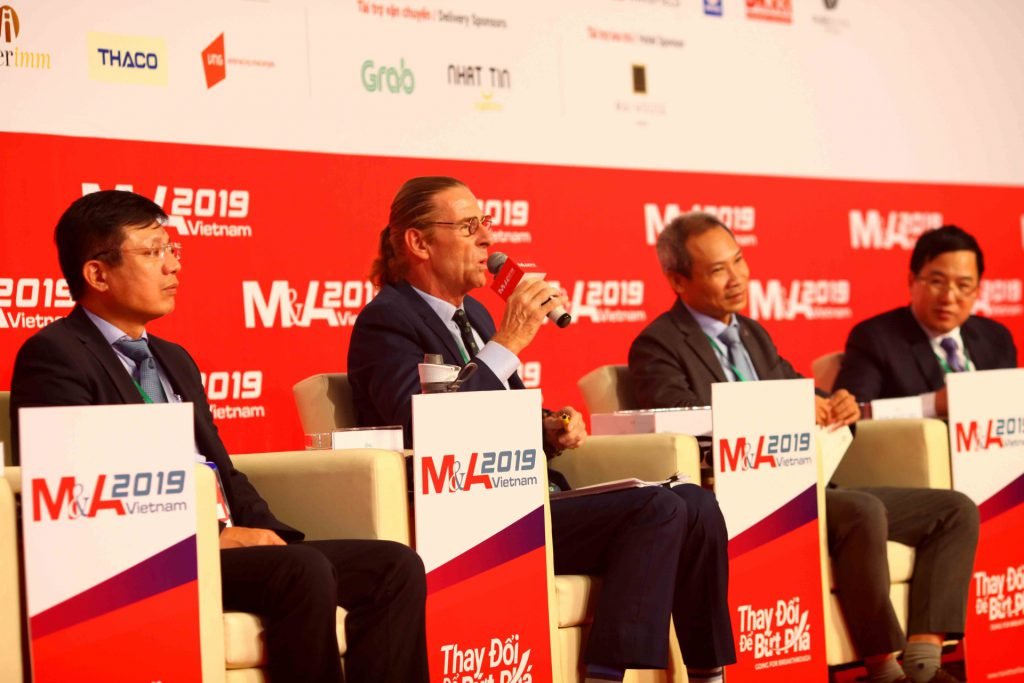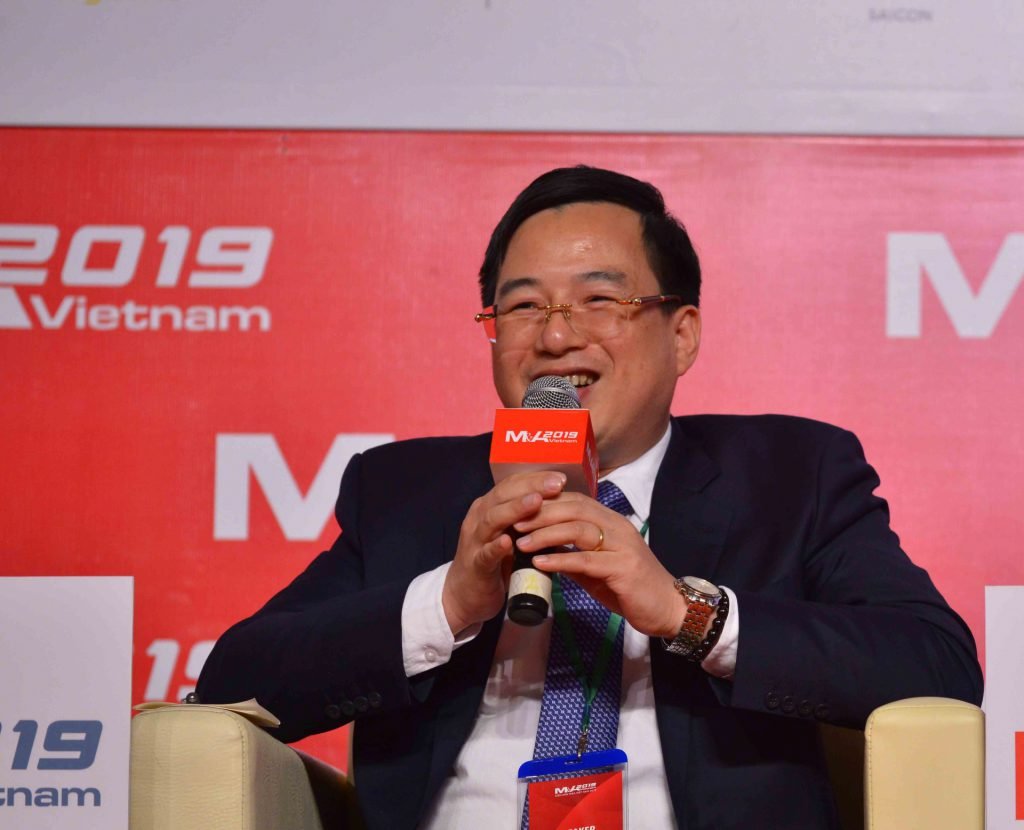
Keyword
Author
admin
Share
Policy reform is key to unlock Vietnam’s M&A future
Viện Nghiên cứu Phát triển Lãnh đạo Chiến lược
Từ khóa
Ngày đăng
Tác giả
admin
Chia sẻ
As new policies and trade deals change the focus of M&A inflows to Vietnam, the Vietnamese government is expected to remove legal barriers, create a positive environment for foreign investors, and push the divestment process at state-owned enterprises.

In the first panel discussion at yesterday’s Vietnam M&A Forum 2019 in Ho Chi Minh City, policymakers and industry experts have talked at length about legal reforms that can push the M&A market forward.
Regulators’ viewpoint
According to the experts, foreign investors look forward to higher levels of transparency and corporate governance at Vietnamese firms, especially when it comes to state-owned enterprises (SOEs). This ranges from information on land usage, the rights and obligations of investors, and the disclosure of financial data to the foreign ownership limit.
Dang Quyet Tien, head of the Corporate Finance Department at the Ministry of Finance (MoF), acknowledged that information disclosure remains an issue at Vietnamese SOEs – partly because of differences in Vietnam’s accounting standards and the International Financial Reporting Standards. The lack of quality information can discourage investors from doing M&A with the companies, said Tien.
“We’re addressing these issues in the revised Securities Law. We’re also revamping the process of hiring valuators for M&A transactions, most notably on the issue of land usage. Not stopping there, before 2025, we’ll require major companies in Vietnam to use international standards in financial reporting,” the official talked of legal reforms already on the horizon.

When asked about the delays that are plaguing SOE equitisation in Vietnam, Le Song Lai, deputy general director of State Capital Investment Corporation (SCIC), explained that the state investor wants to follow international standards, as well as improve transparency. Companies also want foreign investors with experience in their field, which also delays the process.
“Last November, we received a list of 19 groups and conglomerates which are in the pipeline for equitisation, mostly in power, telecommunications, oil and gas, and agricultural production. State capital at these firms is VND800 billion ($34.78 million),” said Ho Sy Hung, deputy chairman of Vietnam’s Committee for State Capital Management.
Regarding legal reforms on the stock market, Pham Hong Son, deputy chairman of the State Securities Commission, stressed that the revised Securities Law will force companies to list immediately after their initial public sale – which is aimed at providing liquidity and transparency for investors.
“We’re also considering the option of non-voting shares and non-voting depository receipts,” said Son.
Concerns of foreign investors
Experts and investors in the first panel emphasised that foreign investors remain greatly interested in Vietnam’s M&A market. Tamotsu Majima, senior director at Recof Japan, said that the number of M&A deals between Vietnam and Japan during the past years has increased remarkably, especially in manufacturing and services.
Similarly, Stefano Pellegrino, chief secretary of the European Chammber of Commerce in Vietnam, said that membership at the EuroCham has been increasing thanks to the EU-Vietnam Free Trade Agreement. He expected this trend to continue.
“European investors are known to be socially and environmentally friendly, as well as willing to offer technological know-how. These are their strengths in the Vietnamese M&A market,” said Pellegrino. Notable sectors of interest are wide-ranging, from renewable energy, pharmaceuticals, logistics, as well as oil and gas to manufacturing and consumer goods, most of which are affected by the trade deal.
Market consultants at the panel discussion said that transparency is highly valued by investors, and buyers will study market data and the potential partner very carefully before making the next step. This is especially true for Japanese investors.
“Japanese investors need to have a vision for post-merger and integration 3-5 years after the deal, which can be difficult unless there are in-depth dialogues between the partners. This will lay down the foundation for successful M&A, contributing to successful post-merger operations and integration,” said Masahiro Kotaka, managing director of KPMG Japan.
On behalf of her clients, Vo Ha Duyen, partner at Vietnam International Law Firm (VILAF), said that the New Law on Competition might scrutinise M&A deals that have combined sales of $85 million. This can result in more processing time for lawyers and consultants and delay the speed of M&A deals in Vietnam, as more and more deals are crossing this threshold.
By Vietnam Investment Review



